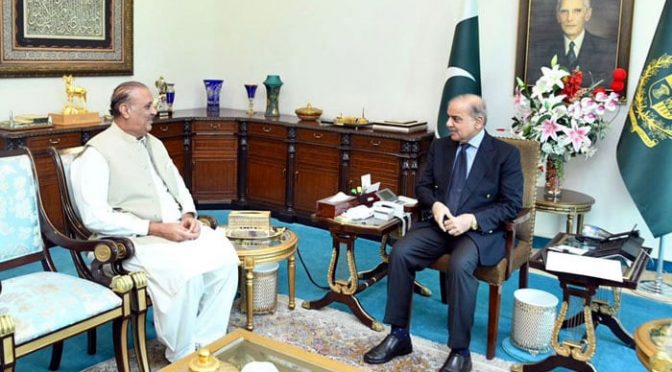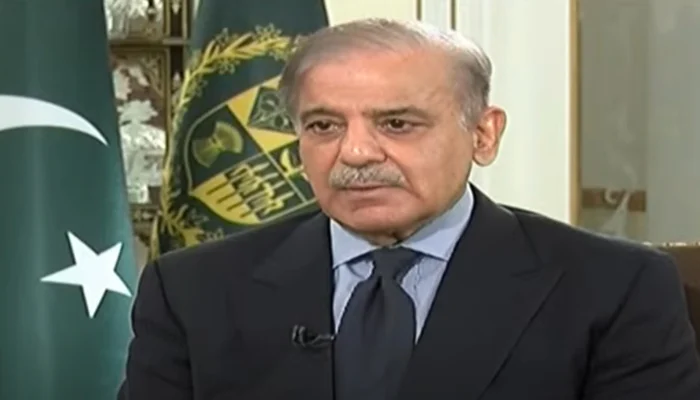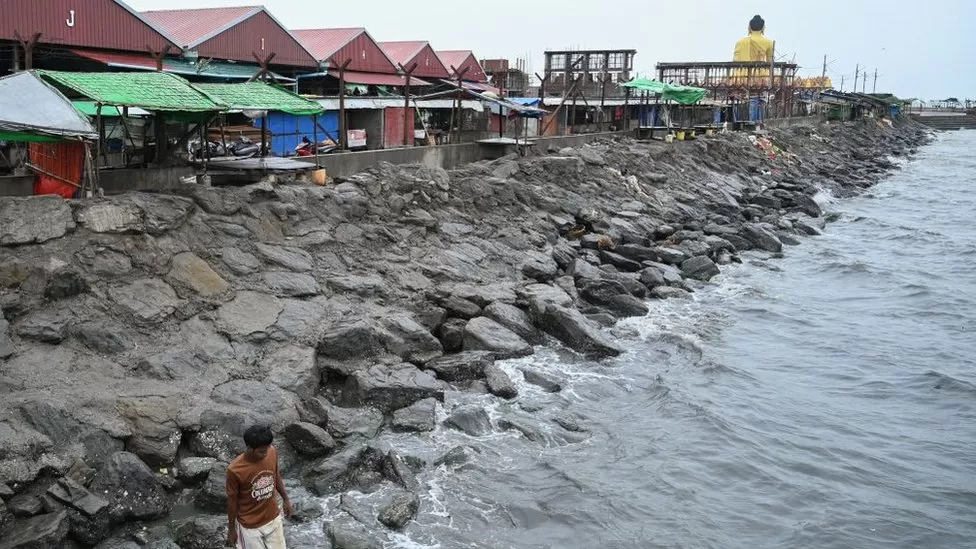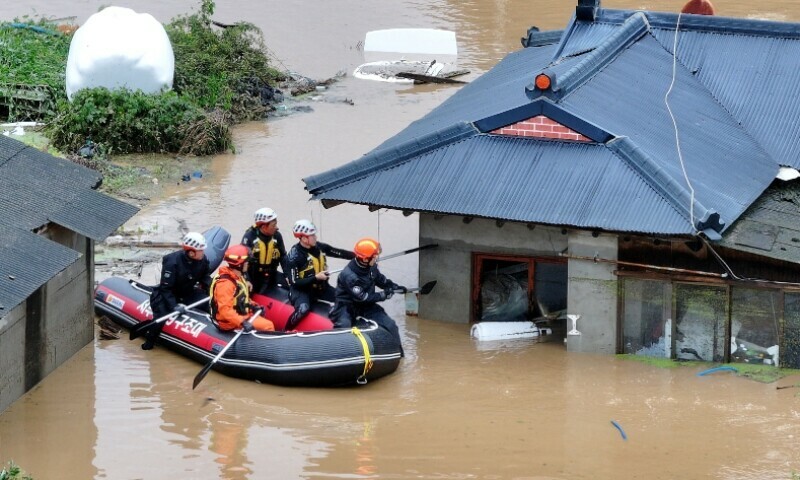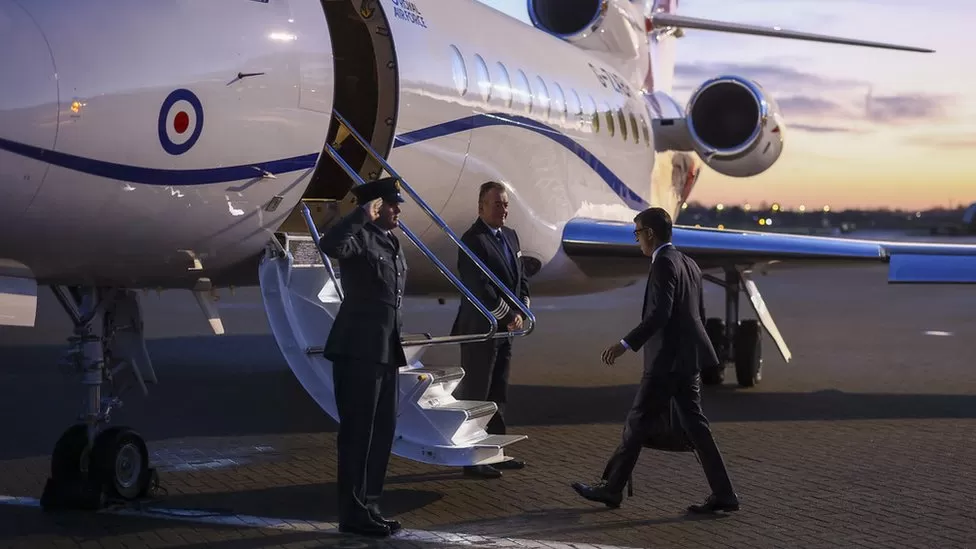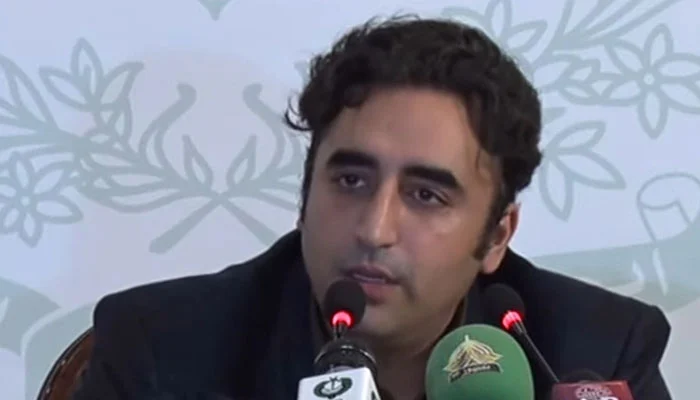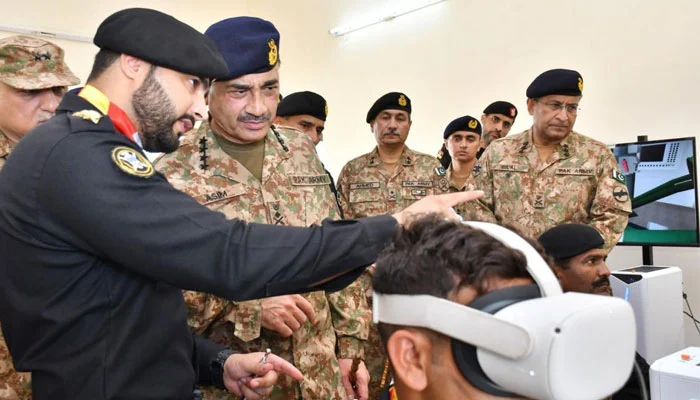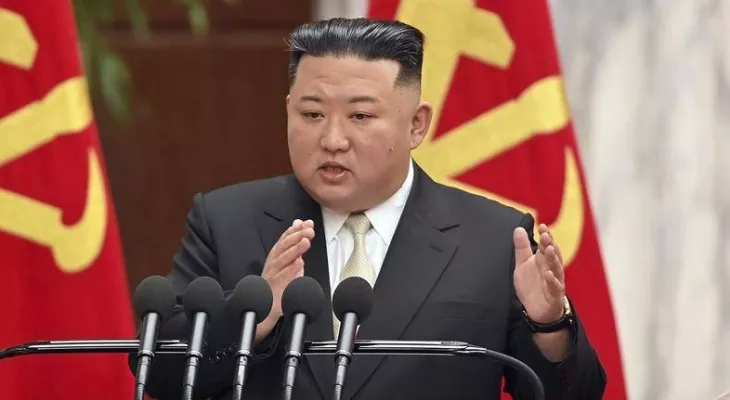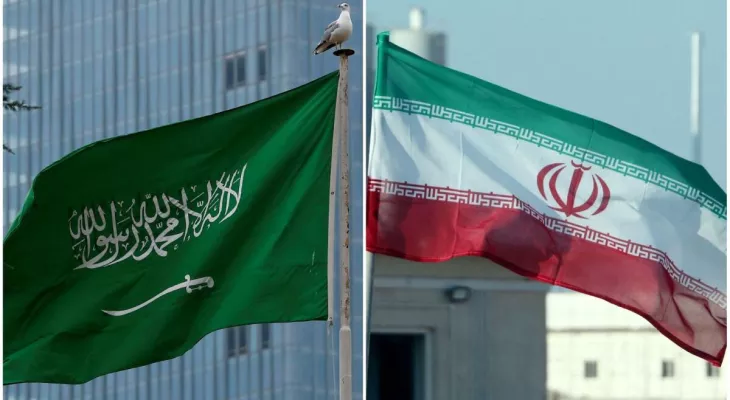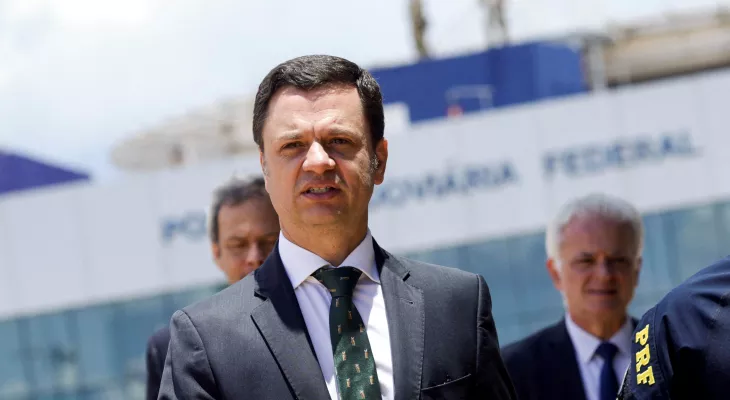ISLAMABAD: After the first round of consultations on a caretaker prime minister, Opposition Leader in the National Assembly Raja Riaz and Prime Minister Shehbaz Sharif have failed to agree on a name and are yet to reveal the identities of the people in the run for the post.
Talking to the media after his consultation on Thursday, Riaz said that the conversation surrounding the interim prime minister was held in a cordial manner.
“It has been decided that another round of consultation will be held tomorrow (Friday). Till a name is not finalised no name will be revealed,” said the NA opposition leader, an indication that both sides are keeping cards close to their chest. However, Riaz did confirm that he had shared the names of his candidates with the premier, hoping that things will clear out tomorrow.
“The prime minister and I have to hold consultations. I told the PM that I will consider his [interim PM] names and he should consider the names suggested by him [Riaz],” said Riaz. He added that PM Shehbaz was unaware of the names suggested by him.
The opposition leader also said that he is confident that PM Shehbaz and he would develop a consensus on a single candidate for the interim premier’s slot.
Further deliberations to be held tomorrow: PM Office
On the other hand, the PM Office in a statement confirmed that further deliberations between Riaz and Shehbaz will be held tomorrow (Friday).
The consultation between the premier and opposition leader was due after the dissolution of the 15th NA of Pakistan last night, with President Arif Alvi’s approval of the summary sent by PM Shehbaz.
“The president dissolved the National Assembly on the advice of the prime minister under Article 58-1 of the Constitution,” read an official statement issued by the President’s Office on X, formerly known as Twitter, late Wednesday.
PM Shehbaz had formally invited Riaz for the meeting for consultation in a letter.
In his letter, the premier said that the president has dissolved the National Assembly under Article 58(1) of the Constitution and that he is ready to fulfil his constitutional responsibility for the appointment of the caretaker prime minister.
A process to appoint a caretaker prime minister will be conducted under Article 224-A of the Constitution, which will usher in an interim government to oversee an election.
Three names have been proposed, including two nominations — former diplomat Jalil Abbas Jilani and former chief justice of Pakistan Tassaduq Hussain Jilani — sent by the Pakistan Peoples Party (PPP) and Sindh Governor Kamran Tessori, by Muttahida Qaumi Movement-Pakistan (MQM-P).
However, there’s no public announcement by the Pakistan Mulsim League-Nawaz (PML-N) in this regard.
Names of former finance minister Ishaq Dar, former prime minister Shahid Khaqan Abbasi and former caretaker prime minister Mohammad Mian Soomro are also under consideration.
If the prime minister and opposition leader fail to agree on the name within three days, the matter will go to the parliamentary committee for the appointment of a caretaker PM.
As per the law, the premier and the opposition leader will send their respective preferences for the coveted post to the parliamentary committee.
The parliamentary committee will have to finalise the name of the caretaker prime minister within three days and if it too failed to reach a consensus on the name, then the Election Commission of Pakistan (ECP) will pick the caretaker prime minister within two days from the names proposed by the opposition and the government.
By law, elections should be held within 90 days of parliament’s dissolution, but the outgoing government has already warned they are likely to be delayed.
After the Council of Common Interests (CCI) approved new census results, ECP is required to carry out fresh delimitation — an exercise that will likely take three to four months.


